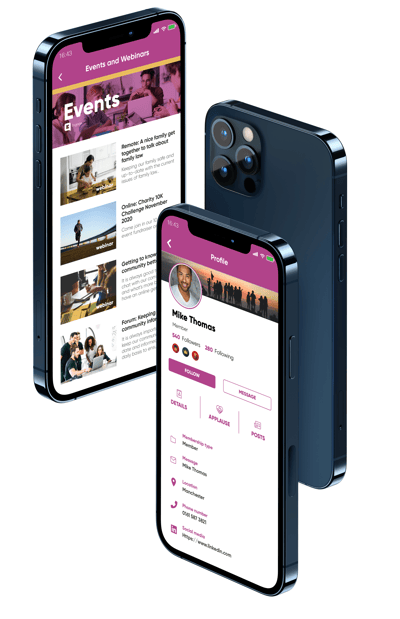Communities turning away from Big Tech
10 Mar 2021, posted in Case StudyNews
An interesting article on the Beeb over the weekend –
https://www.bbc.co.uk/news/technology-55349255
Basically, some of the big content players on YouTube are tiring of the constraints of the platform and its overlords and looking to build their own much smaller, but very engaged, committed communities online with their own dedicated platforms.
It’s another example of people kicking against the thraldom of ‘big tech’, with consumers revaluating their relationships with social networks as they become increasingly concerned by privacy issues, troubled by manipulative algorithms, and stressed by the toxic environments.
It’s this tide that’s powering growth in the community app space. Every week now we are having conversations that would have been unimaginable a year ago, as everyone’s default position then was to leverage a social network if they wanted to move beyond the old standard web forum. Now, it’s a whole different story.
Currently we have the business leadership group wanting a creative, collaborative space in which to carefully curate high value content and nurture members. The law firm looking to amplify its amazing range of practice IP and encourage closer connections between lawyers, clients and prospects. The retail organisation that has millions of customers every year but, by the nature of the particular retail, minimal customer data available – but can build loyalty and mindshare through cultivating special interest groups.
And while no doubt the techno whizzes in the BBC article are happy to invest a lot of time and money in their new channels, what about those looking for a more nimble, cost-effective solution?
It’s the other reason why those conversations are happening – not just the desire for a fully-fledged community app, but the need to deploy one quickly and very cost-effectively. That’s the merit of talking to someone who has done all that hard work for you – built the core app, with enough flex around branding and tooling to make it ‘your app’, alongside the other major upsides: an average deployment time of a month, and an average one-off cost of about half a skilled developer’s annual salary.
You get all the best bits of social with none of the bad. Full control, no restrictions, privacy compliant, total visibility and ultimately a vehicle designed from the ground up for people and communities, not data and commodities. They say big is beautiful but the lustre seems to be dimming in places….maybe time to try small but perfectly formed instead.
